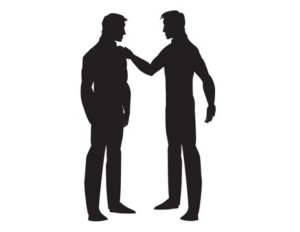 This is a guest post by our friend, Ashley Marlow. If interested in submitting a guest post please read our guest posting policy and then contact us.
This is a guest post by our friend, Ashley Marlow. If interested in submitting a guest post please read our guest posting policy and then contact us.
One of the most difficult things about my job is trying to overcome the stigma that many people have about counseling. Granted, I typically counsel kids, but in order to work with them, I have to gain the trust and consent of their parents. Once they are on board, I work on winning over the kids.
Hey kid, you’re not crazy
One particularly unhappy middle schooler was so distraught over his invitation to see me that he burst into tears. I asked him what the tears were about and he said that he didn’t know why he had been sent to me because he wasn’t a crazy person.
After assuring him that no one thought he was crazy, I explained that my job was to help students. He looked at me with mild disgust and said, “No offense, but no one wants to see the School Counselor because, it like, means there’s something wrong with you.”
Hey grown-ups, you’re not crazy either
I share this because both men and women are often reluctant to see a counselor due to the fear that entering that office will mean that they’re crazy or that something is really wrong with them. Let me assure you that meeting with a counselor does not mean either one of those things.
Think of it as talking out loud with someone who can reflect back to you what you’re saying, while providing some possible insight into the situation. Talking with friends and family can be great, but unless they’re trained to handle other people’s issues, they might not be able to help you feel heard, validated, and hopeful about resolving the situation. Counselors can help you to overcome the challenges in your life, whether it’s getting over the loss of a loved one, analyzing why you keep repeating the same mistakes in relationships, or trying to figure out the next step in your career.
Misconception: Counseling hands you the answer to your problems
However, one common misconception about counseling is that counselors will be able to give you the answers to your problems. Making that assumption will only cause you frustration. Instead, the right counselor will serve as an objective third party to ask questions that get to the root of the issue – by putting a different spin on the situation, the person receiving counseling will gain a new perspective and come up with possible solutions to their problems. These solutions can then be discussed in counseling to determine what the best option will be. Unfortunately, people typically give up on counseling before it’s had a chance to be effective, so trust the process and give it some time.
Not every counselor is the right fit
Sometimes the first mental health professional that you go to may not be the right person to help you, in which case, it might take some time to find someone who meets your needs. Finding the right counselor is like finding the right pair of sneakers –sometimes you need to try on a few pairs before you find the one that’s going to make you feel comfortable, supported, and ready to tackle anything. Like sneaker brands, there are many different therapists with different philosophies and personalities out there.
For example, a cognitive behavioral therapist can teach coping strategies to a client struggling with anxiety, while a counselor who specializes in interpersonal therapy helps the client to identify and manage relationship problems. Some of you might be thinking, “Okay fine, I’ll see a counselor, but isn’t it expensive?” The answer to that question is not necessarily. Many companies recognize the importance of their employees’ mental health and counseling is now typically covered by insurance.
Talk with trusted friends and family to see if they know of a mental health professional that they could recommend to you; you may even be surprised to find out how many people you know have seen a counselor! If that isn’t the way that you’d like to find a counselor, look at the therapists listed under your health insurance provider and then Google the ones that sound interesting so you can learn more about them.
Set up an appointment and during the first meeting, see if that counselor is someone that you would feel comfortable talking to – it takes some time to establish trust, but with the right person, you won’t have to worry about feeling awkward.
Fearing the unpleasant
Discussing the sad or unpleasant things that have happened to you can be difficult, but stuffing your feelings inside or disregarding your problems doesn’t help them to go away. Instead, it just means that they’ll surface later on. While it’s easier to stick our fingers in our ears and cover our eyes and pretend like everything’s going to be okay if we just ignore it for long enough, the best way to deal with life’s ups and downs is to face them directly.
“Wow, that wasn’t so bad”
The bottom line is that everyone goes through challenges in life and we all need a little help sometimes. It can often be easier to talk to someone who is unbiased, rather than family or friends, because the counselor has no motive to sway you one way or another. A counselor’s primary concern is for your well-being and happiness, but they know that your choices are your own and they will respect whatever you choose to do. Hopefully you’ll leave their office with the same reaction as my student and think, “Wow, that actually wasn’t so bad.”
Ashley Marlow is a School Counselor at a local private school. She loves traveling, meeting new people, watching movies, and exploring San Diego.